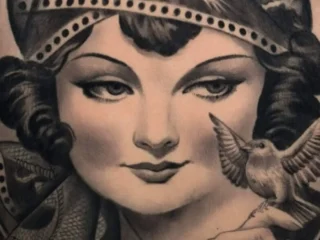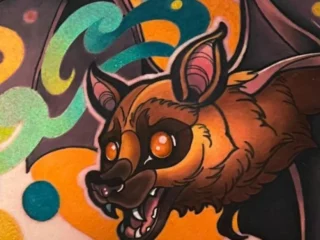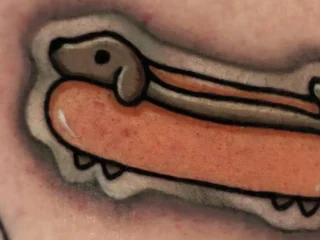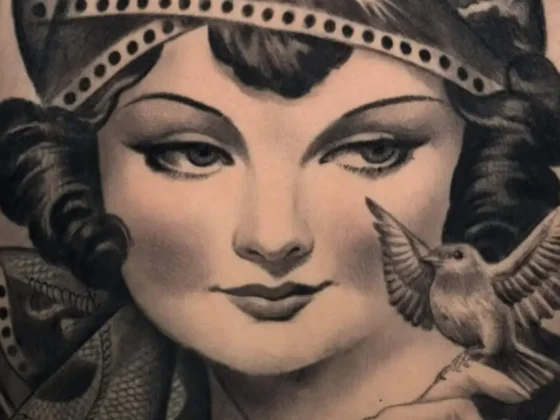Devon Preston
October 31st, 2018
The Science Behind Tattoo Addiction
Are Tattoos Addictive?
According to HistoryofTattoos.com, of the people who have tattoos 70% have more than one tattoo and 20% have five or more tattoos. These numbers have led our team at INKED to ask, are tattoos addictive and what is the science behind tattoo addiction.

First things first, let’s define addiction. According to the American Society of Addiction Medicine, “Addiction is characterized by inability to consistently abstain, impairment in behavioral control, craving, diminished recognition of significant problems with one’s behaviors and interpersonal relationships, and a dysfunctional emotional response.”
And while the concept of tattoo addiction may not be as severe, controlling or damaging as an addiction to drugs or alcohol, there are biological, psychological and sociological components to collecting tattoos. Additionally, there are different aspects to collecting tattoos, from the pain to the attention, that can make tattoos addicting.

Biological High
First off, when you get a tattoo adrenaline and endorphins are released into the body. The effects of these this natural high can also be seen through other physical activities like exercise and sex. Some people enjoy the “rush” they feel from a tattoo so much, that the process of getting tattooed can become addictive.
In some rare instances, people have described the pain itself as addictive and many use the pain of the process to alleviate mental or psychological stress. However, this does not mean that all people with tattoos like pain, use the pain as a coping mechanism or have a pain fetish.

Head Games
It’s arguable that the psychology component of collecting tattoos is the main reason that people believe it to be addicting. With the exception of some tribal groups, people primarily get tattoos as a form of self-expression. Whether it be to portray visual symbols of significant personal meaning or a permanent way of collecting beautiful art—the tattoo industry thrives on the pursuit of expression one’s individuality and passions. When someone earns a new permanent piece of art on their skin, it is exciting and many believe the desire to continue adding new pieces to a growing personal collection is the hallmark of tattoo addiction.
Additionally, tattoos can help to fuel self-esteem and give people a new appreciation for a body part they’re not found of. For example, after childbirth many mothers get tattoos over their stretch marks and scars as a means of finding a fresh start without invasive plastic surgery. To the same point, survivors of breast cancer will often get mastectomy tattoos to help find beauty in their bodies once again.
For a select population, the act of receiving attention for their tattoos can be addicting. While many people don’t like the attention that they receive for their tattoos, others love counting the likes they get on social media for a fresh tattoo.

Social Circles
Lastly, collecting tattoos can also be addicting for sociological reasons. Over the years, tattoo culture has become a varied and diverse community for millions of people around the world. No longer is tattooing segregated to a select population of people, it has instead expanded to include people of every gender, sexual orientation, race, economic background and profession. Human being crave being part of a group and in this case, tribalism can play a role in tattoos becoming addicting. The more tattoos you have, the more you feel a part of the industry, culture and community.

What do you think about the science of tattoo addiction? Do you believe that tattoos are addicting? What aspect of collecting tattoos is a personal addiction for you? Let us know your thoughts and experiences in the comments section on Facebook.

Editor's Picks
Chris Brown’s Face Tattoo Shows His Heart and Sole
Chris Brown has a brand new tattoo! Long gone are the days of the baby faced teen, Brown is all grown up and has the tattoo collection to prove it!…
Oh Me, Oh My
Chrissy Chlapecka on finding her voice, spreading self-love on TikTok and releasing her first single













